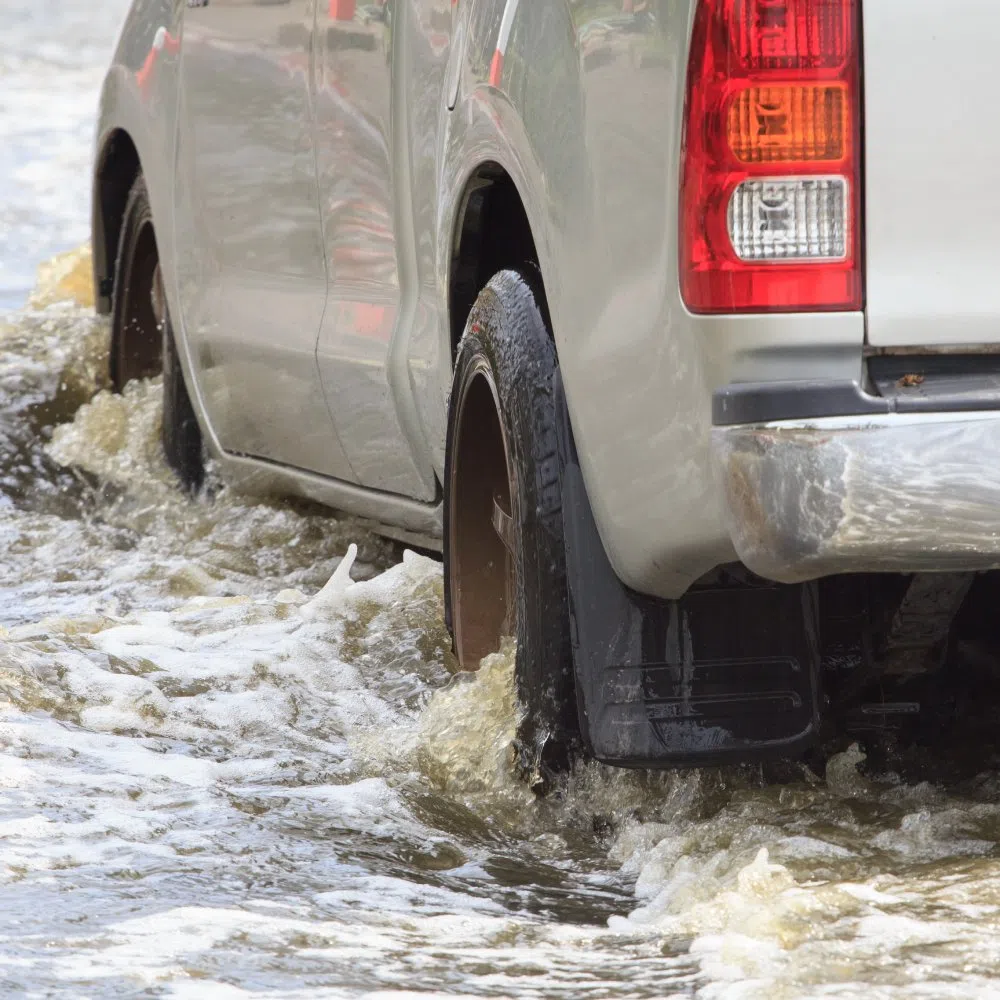Have you ever come across a section of road covered in water? Or perhaps your neighborhood experienced a flood, and you still wanted to drive somewhere despite the waterlogged streets. Though just a few centimeters of water might seem harmless to navigate in a vehicle, it can cause more problems than you might initially imagine. Read on to explore why you should avoid driving through deep water in your car.
What Qualifies as Deep Water?
First, let’s define what we mean by deep water because it’s not a lot. Even just 15 centimeters of water on a road is risky to drive through.
What Happens if You Drive Through Deep Water
Below are the main reasons why you should avoid driving through deep water if it is at all possible.
Engine Damage
Water and engines simply don’t mix well. If water enters your engine through the air intake, it can cause something called hydro-lock. The pistons in your engine can’t compress water like they can gasoline and air. As a result, they might stop working, causing your engine to stall and even fail.
Electrical System Failure
Modern cars are packed with electrical components, and water exposure is one of their worst enemies. Driving through deep water can allow moisture to seep into critical electrical systems, leading to malfunctions or permanent damage. It is so important to protect electrical systems from moisture to keep your car running smoothly, so why take the unnecessary risk?
Loss of Control
Even just a few centimeters of water can make your car’s tires lose traction, which can result in a phenomenon called hydroplaning. This can make steering and braking almost impossible, putting you and others on the road in danger. The deeper the water, the higher the chance of losing control.
Hidden Hazards
Flooded roads are deceiving. What looks like a shallow puddle could actually conceal deep potholes, debris, and surfaces that could damage your suspension or tires.
What Can You Do Instead?
If you encounter flooded roads, it’s always safer to turn around and find an alternate route. Even if it takes a little longer, avoiding deep water can save you the time and money you’d spend repairing damages.
If you absolutely must drive through deep water, take your car to the mechanic afterward for a check-up. They will be able to tell if the event caused any damage and perform repairs before major issues crop up.
But again, prioritize not driving in flood conditions and being smart on the road. You could save yourself thousands of dollars in the process.
Image Credit: lightmemorystock, license #71496732




Comments